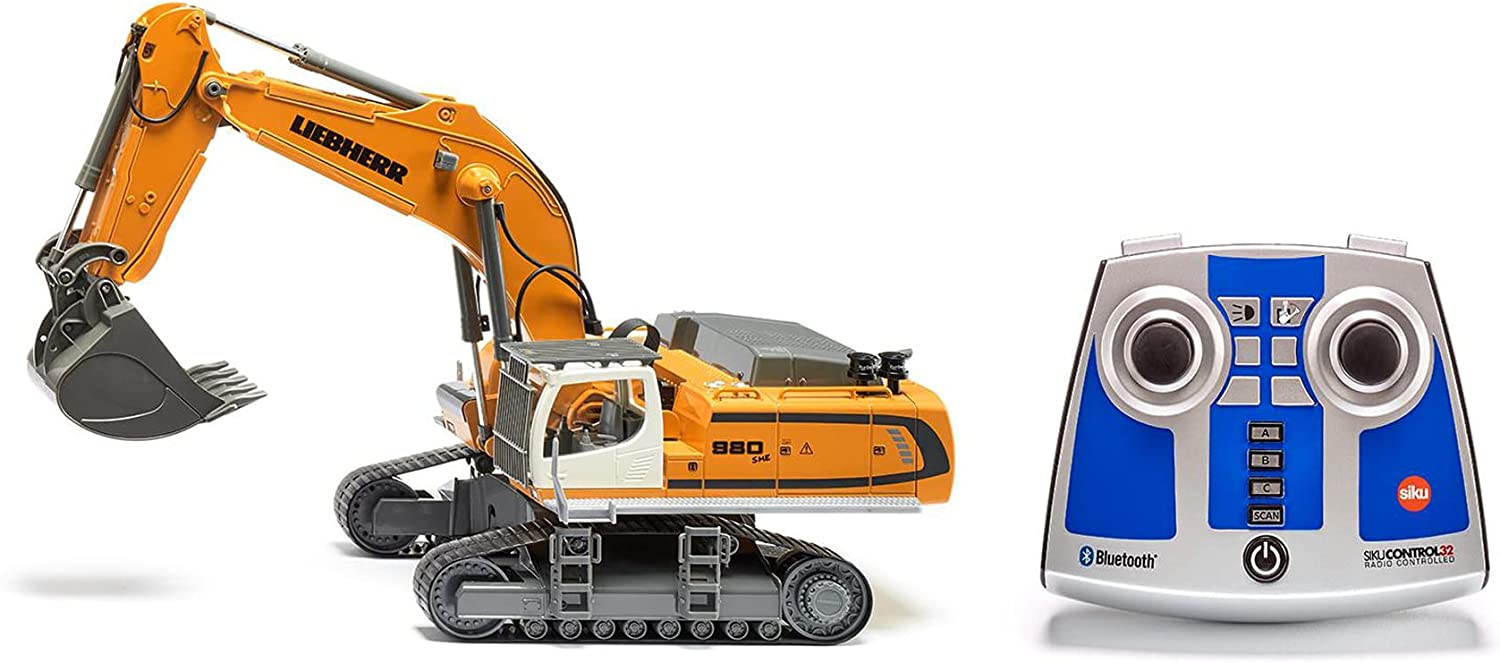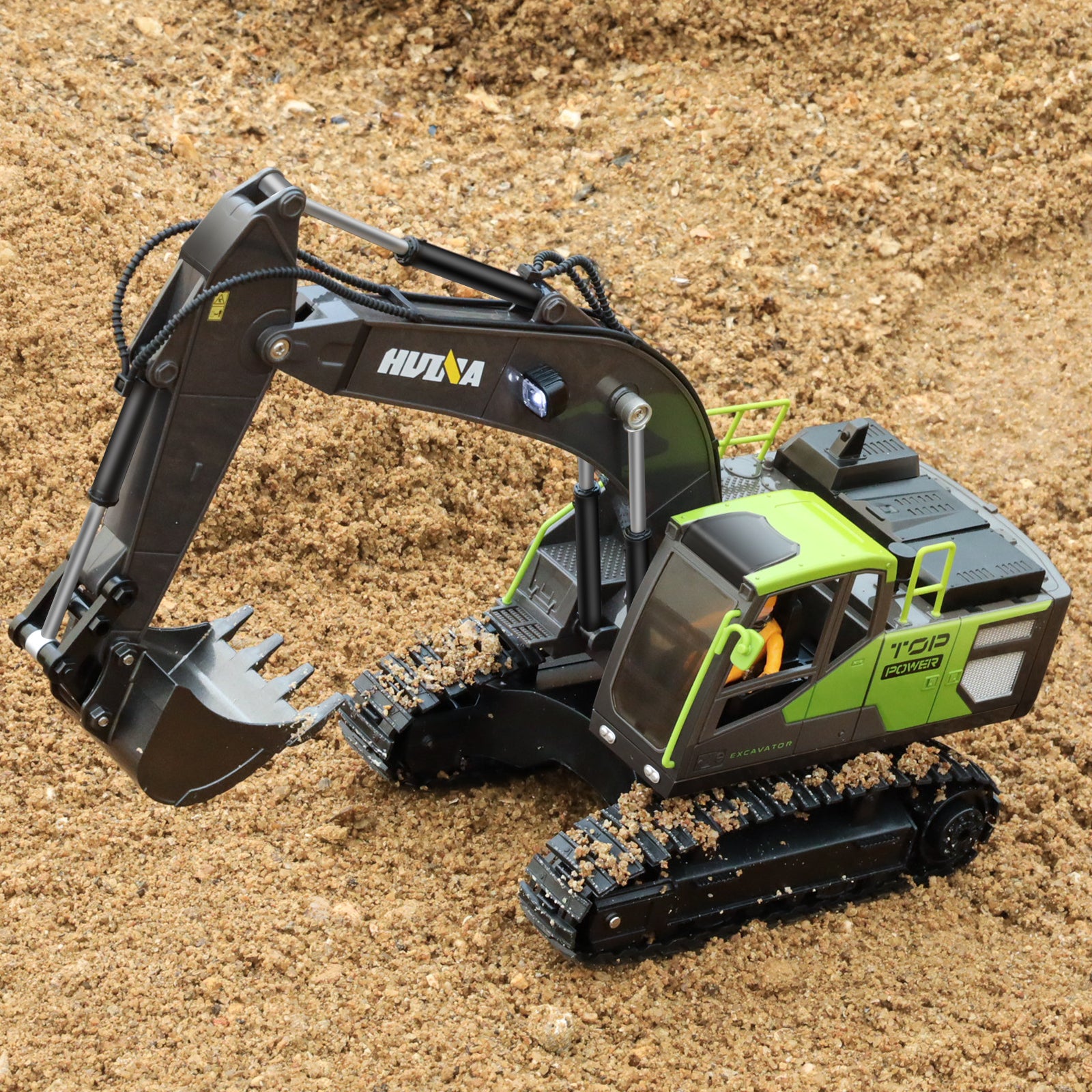Comprehending Just How Excavator Functions and Its Effect On Efficiency
Excavators play a crucial duty in construction and mining procedures, depending on an intricate interplay of hydraulic and mechanical systems. Their ability to execute a variety of tasks rests on both their design and the modern technology integrated within. Understanding these components can greatly affect operational effectiveness and productivity. As advancements remain to reshape the sector, one need to consider exactly how these adjustments will certainly influence future methods and performance.
The Basics of Excavator Mechanics

The Function of Hydraulic Equipments in Excavators
At the heart of excavator procedure lies the hydraulic system, which plays a pivotal function in powering the maker's activities and features. This system makes use of pressurized hydraulic liquid to move power, enabling different activities such as moving, training, and excavating. By using the concepts of hydraulics, excavators can execute tasks with remarkable accuracy and force, improving overall operational efficiency.The hydraulic system includes essential elements, consisting of cyndrical tubes, valves, and pumps, which work with each other to manage the flow and instructions of the liquid. When the operator engages the controls, the hydraulic fluid is routed to specific cyndrical tubes, equating the driver's commands right into physical motion. This mechanism permits for receptive and smooth actions, which are essential in building and construction and excavation atmospheres. double e volvo rc excavator. The performance of the hydraulic system straight affects the performance and versatility of the excavator, making it an indispensable aspect in contemporary excavation processes
Trick Components of an Excavator
Recognizing the crucial elements of an excavator is vital for comprehending exactly how this powerful equipment operates. An excavator is composed of numerous considerable elements, consisting of the undercarriage, home, arm, boom, and pail. The undercarriage provides security and movement, usually featuring wheels or tracks to browse various terrains. The residence consists of the engine and hydraulic systems, enabling the driver to control motion and power the equipment. The boom extends from your house, making it possible for upright reach, while the arm connects to the bucket, assisting in excavating and lifting operations.Additionally, the taxi houses the driver, equipped with controls for precise maneuvering. Each of these parts plays an important function in the excavator's total capability, adding to its effectiveness and efficiency on building and construction sites. Recognizing these parts assists in keeping and enhancing excavator efficiency, guaranteeing tasks are completed safely and successfully.
Add-on Convenience and Its Benefits
Attachment flexibility is an important element of excavators, making it possible for drivers to switch over in between numerous devices customized for particular tasks. This flexibility not just boosts work performance but additionally contributes to cost-effectiveness by minimizing the requirement for numerous makers. Recognizing the various types of accessories available can greatly impact the general efficiency and performance of an excavator on task sites.
Types of Add-ons
While excavators are mostly acknowledged for their digging abilities, their true versatility depends on the vast selection of add-ons readily available. These add-ons boost the excavator's performance, allowing it to perform various jobs past excavation. Usual add-ons consist of pails (for digging and scooping), hydraulic thumbs (for grasping products), and augers (for piercing openings) Grapples are used for dealing with and moving particles, while rippers can separate difficult surfaces. Other specialized add-ons, such as plates and rakes, allow excavators to adapt to specific work requirements. This variety not just boosts the device's utility across various markets, consisting of construction, landscape design, and demolition, but additionally allows drivers to customize their equipment to fulfill particular task demands successfully.
Enhanced Job Effectiveness
Making best use of job effectiveness is a key advantage of utilizing different excavator add-ons. Different accessories allow an excavator to carry out multiple tasks without requiring to change tools, saving valuable time and labor. Utilizing a hydraulic hammer can damage concrete while a pail accessory can dig deep into soil, allowing a smooth operations. This versatility decreases downtime associated with equipment changes and enhances performance on-site. Additionally, specialized accessories enhance accuracy in tasks such as grading or landscaping, resulting in better end results. The capacity to adapt to different job requirements not just improves procedures however also decreases the requirement for extra machinery, ensuring that jobs are finished swiftly and effectively. Generally, add-on convenience significantly adds to raised task effectiveness in excavation work.
Cost-Effectiveness and Convenience
Cost-effectiveness is a significant benefit of using versatile excavator attachments. These add-ons permit a solitary excavator to do multiple tasks, lowering the demand for additional machinery and labor - double e volvo rc excavator. By switching between pails, hammers, and grapples, drivers can tackle different projects, from digging to demolition, thereby making the most of tools application. This flexibility not just reduces operational costs yet likewise minimizes downtime related to transforming devices. Furthermore, the ability to customize excavators with specialized add-ons improves productivity, as they can successfully take care of varied jobs according to project needs. To conclude, the combination of cost-effectiveness and adaptability in excavator accessories contributes to enhanced functional performance and resource allowance in construction and excavation tasks

Advanced Innovation in Modern Excavators
Modern excavators are increasingly geared up with sophisticated modern technology that changes excavation processes. Automation improves procedures, while boosted gas effectiveness minimizes operational prices. Furthermore, clever control systems boost accuracy and security, marking a substantial development in excavation devices.
Automation in Excavation Processes
As excavation innovation progresses, automation has actually become an important component in boosting effectiveness and accuracy on work sites. Modern excavators are geared up with advanced automated systems that promote tasks such as grading, digging, and trenching with their explanation minimal driver treatment. These systems make use of sensing units, GPS, and equipment knowing formulas to guarantee accurate positioning and deepness control, significantly decreasing the margin for mistake. In addition, automation permits operators to concentrate on tactical decision-making instead than hand-operated controls, leading to enhanced productivity generally. Such advancements not only improve operations but additionally enhance safety by decreasing human error in complex operations. Consequently, the combination of automation in excavation procedures stands for a significant improvement in building and construction technology, driving why not try these out the market towards better efficiency and effectiveness.
Improved Fuel Efficiency
Advancements in innovation have also caused substantial improvements in fuel efficiency for contemporary excavators. Modern devices are equipped with innovative engines that enhance power output while decreasing fuel usage. These engines make use of cutting-edge burning modern technologies, such as turbocharging and direct gas injection, to improve performance and effectiveness. In addition, lightweight products in construction lower total weight, permitting for much less energy expense throughout operation. The introduction of variable rate controls enables drivers to change engine performance according to details jobs, even more decreasing fuel use. Because of this, these enhancements not only lower operational expenses but likewise add to environmental sustainability by lowering discharges. On the whole, boosted fuel performance in excavators is an essential development that strengthens productivity and economic practicality in the building market.
Smart Control Systems
While drivers navigate progressively intricate job sites, smart control systems in excavators have actually arised as important tools for enhancing effectiveness and accuracy. These innovative innovations use formulas and sensing units to monitor numerous criteria such as tons weight, terrain problems, and operational efficiency. By immediately changing hydraulic features, smart systems enhance equipment performance, causing boosted productivity and decreased endure components. In addition, operators take advantage of user-friendly user interfaces that provide real-time comments and diagnostics, permitting notified decision-making. This combination of modern technology not only improves operations however additionally decreases human error, contributing to safer workplace. As the construction industry continues to evolve, clever control systems will play an important function in forming the future of excavator performance and performance.
Enhancing Functional Performance With Excavators
Excavators play a crucial role in enhancing functional efficiency throughout different building and excavation tasks. Their flexibility allows for multiple jobs, including training, product, and excavating handling, which streamlines operations and minimizes the need for extra equipment. With powerful hydraulic systems, excavators can do heavy-duty jobs with accuracy, considerably decreasing the moment called for to total tasks. The assimilation of sophisticated technology, such as GPS and automated controls, further optimizes their procedure, allowing drivers to achieve better precision and lower product waste. In addition, contemporary excavators are developed to consume less gas and lessen emissions, adding to both cost financial savings and ecological sustainability. By making use of excavators successfully, building groups can enhance performance, meet project due dates, and enhance overall site management. This multifunctionality and efficiency make excavators crucial tools in the contemporary construction landscape.
The Future of Excavators in Construction and Mining Industries
As the building and construction and mining industries advance, the future of excavators is poised for considerable improvement driven by technical technology and altering functional demands. Advances in web link automation and artificial intelligence are reshaping excavator abilities, permitting enhanced accuracy and performance in procedures. Autonomous excavators are arising, lowering the requirement for human intervention and decreasing the threat of accidents.Moreover, the assimilation of telematics and IoT modern technology makes it possible for real-time tracking of device performance and anticipating upkeep, maximizing uptime. Green styles, including electrical and hybrid models, are obtaining grip, straightening with sustainability objectives within the industry.Additionally, making use of sophisticated products and lighter layouts boosts fuel effectiveness while preserving performance requirements. As these patterns progress, excavators will certainly play a vital function in satisfying the raising needs for performance and safety in building and construction and mining, ultimately changing functional landscapes.
Frequently Asked Inquiries
How Do Weather Influence Excavator Performance?

Weather conditions significantly influence excavator performance, as rain and mud can hinder traction and stability, while extreme temperatures might influence hydraulic systems. Operators has to adjust to these variables to ensure perfect functionality and security during operations.
What Precaution Should Operators Follow While Making Use Of Excavators?
Precaution for excavator operators include wearing suitable individual safety devices, carrying out pre-operation assessments, making certain proper interaction with ground personnel, maintaining a secure distance from overhead risks, and sticking to established operational methods to avoid crashes.
Exactly How Frequently Should Excavators Be Maintained for Optimum Efficiency?
Excavators ought to be preserved regularly to ensure peak performance, generally every 250 operating hours or as specified by the maker. Routine checks boost integrity, prevent unforeseen break downs, and extend the life expectancy of the devices.
What Is the Ordinary Life Expectancy of an Excavator?
The average life expectancy of an excavator typically ranges from 10,000 to 15,000 hours of operation. Factors affecting longevity include upkeep techniques, operating conditions, and the high quality of the maker itself, influencing general productivity and efficiency.

Can Excavators Run on Irregular Surface Efficiently?
Excavators can operate properly on unequal terrain as a result of their articulated styles and adjustable tracks. These attributes permit them to preserve stability and grip, allowing effective operation in tough atmospheres frequently encountered in building and construction and landscape design projects. Each of these parts plays an important duty in the excavator's overall functionality, contributing to its effectiveness and performance on construction websites. Taking full advantage of task efficiency is a main advantage of using different excavator attachments. While operators browse increasingly complex job sites, smart control systems in excavators have emerged as crucial tools for enhancing performance and accuracy. Excavators play an important duty in boosting operational efficiency across numerous construction and excavation jobs. Advancements in automation and artificial knowledge are improving excavator capabilities, allowing for boosted accuracy and effectiveness in procedures.